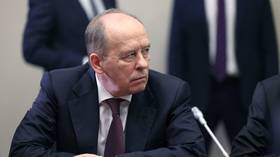IMF blasts UK over taxes

Tax cuts announced by the UK government last week should be reevaluated, International Monetary Fund (IMF) analysts have warned, saying the measure offers poor prospects for the Bank of England in the face of high inflation.
According to the Washington-based agency, the cuts, which sent the pound Sterling to an all-time low of $1.03 on Monday, are likely to increase inequality.
“Given elevated inflation pressures in many countries, including the UK, we do not recommend large and untargeted fiscal packages at this juncture, as it is important that fiscal policy does not work at cross purposes to monetary policy,” an IMF spokesperson said on Tuesday. “Furthermore, the nature of the UK measures will likely increase inequality.”
Meanwhile, Moody’s Investors Service has predicted that the controversial step will lower economic growth by pushing up interest rates. This outlook contradicts the opinion of newly appointed finance minister, Kwasi Kwarteng.
According to the agency, large unfunded tax cuts are “credit negative,” boosting the prospect of Britain’s rating being downgraded.
The IMF said the budget that Kwarteng is due to present on November 23 would provide an “early opportunity for the UK government to consider ways to provide support that is more targeted and reevaluate the tax measures, especially those that benefit high-income earners.”
Earlier this week, Raphael Bostic, the president of the Federal Reserve Bank of Atlanta, said “the proposal has really increased uncertainty and really caused people to question what the trajectory of the economy is going to be.”
For more stories on economy & finance visit RT's business section













